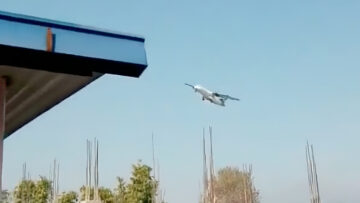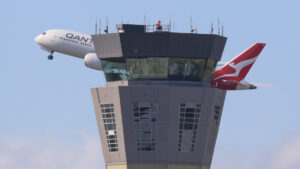
Pilots in Australia will soon be mandated to complete specialist training on how to recover from potentially fatal scenarios where they lose control of the aircraft, such as stalling.
Australian Aviation can reveal CASA has greenlit ‘Upset Prevention Recovery Training’ (UPRT) to commence from 2 December, but it will initially only apply to those flying larger aircraft seating 30 or more people. UPRT was looked into more closely in the US and Europe following two significant crashes in 2009 that killed nearly 300 people.
The new Australian rules mean that by 31 March 2022, all large aircraft operators, including Qantas and Virgin, must have UPRT in their training programs.
The landmark change follows a decade of research and development by Australia’s safety authority, which sent representatives to the US to meet with FAA and visit training centres.
CASA told Australian Aviation it has worked with all relevant operators on the development and implementation of the regulations.
“We will be soon having ‘catch up’ sessions for relevant air operators whose operations ceased or were downsized during the COVID period,” CASA said.
The International Civil Aviation Organization (ICAO) first amended regulations in 2014 to include UPRT as a requirement, with the US then mandating UPRT programs in their Part 121 regulations in 2019. It came after 49 people onboard a Continental Connection flight from New Jersey to New York died when a Bombardier Q400 stalled in February 2009, and a further 228 were killed in similar circumstances on an Air France A330 flight from Rio de Janeiro to Paris months later.
Now Australia is making its first step to implementing a thorough UPRT regime within aviation training.
A type rating UPRT program would include emphasis on causes, contributing factors, safety reviews, demonstrations, upsets and energy management, CASA said.
CASA said Australia has been largely influenced by ICAO and FAA guidelines in establishing its own model of UPRT, despite COVID being a “major impediment” to its implementation.
Free Aviation news, delivered to your inbox
Sign up to our Australian Aviation Express email newsletter to receive the latest in aviation.
Numerous reasons such as logistics issues and a significant number of pilots being stood down plagued rapid progression – which were largely impacted by border closures and lockdowns.
“Delays in getting upgrades to simulators, for example, came from difficulties in travel for engineers and there have been logistics delays in obtaining simulator upgrade packages,” CASA said.
Shane Tobin, an industry veteran who co-founded UPRT Australia, said while he welcomes the news, there remains “major issues still outstanding” in the regulatory change.
He said one of the primary holes is that it only applies to high capacity aircraft and excludes general aviation training.
Tobin also said it will only be effective for companies with access to simulators, which still lacks in addressing the “negative psychological and physiological effects an upset will have on a pilot”.
“It needs to be taken outside the simulated world and into the real aircraft,” Tobin said.
“Simulated upsets do not help the thousands of private pilots and operators of smaller commercial aircraft that do not have access to simulators.”
Tobin said he sees this as a “step in the right direction”, but ultimately believes more needs to be done for a safer system.
Australian Aviation will take a further look into UPRT in its upcoming magazine edition.
Start your very own aviation journey with Australian Aviation. Sign up today for as little as $49.95 and you’ll enjoy access to:
You can always rely on us to keep you in the know.
Join now and start enjoying all these benefits today.
- "
- 2019
- 2021
- 7
- access
- aircraft
- All
- Australia
- authority
- auto
- aviation
- border
- Capacity
- Casa
- change
- commercial
- Companies
- connection
- continental
- Covid
- Current
- delays
- Development
- died
- Effective
- energy
- Engineers
- Europe
- faa
- First
- flight
- France
- General
- guidelines
- High
- How
- How To
- HTTPS
- Including
- industry
- International
- issues
- IT
- large
- latest
- lockdowns
- logistics
- looked
- Making
- management
- March
- model
- months
- New Jersey
- New York
- news
- Newsletter
- Operations
- organization
- paris
- People
- Pilots
- Podcasts
- Prevention
- private
- Program
- Programs
- reasons
- Recover
- recovery
- regulations
- regulatory
- research
- research and development
- Reviews
- rules
- Safety
- sees
- simulator
- start
- Stories
- system
- Training
- travel
- us
- veteran
- Virgin
- WHO
- within
- world








